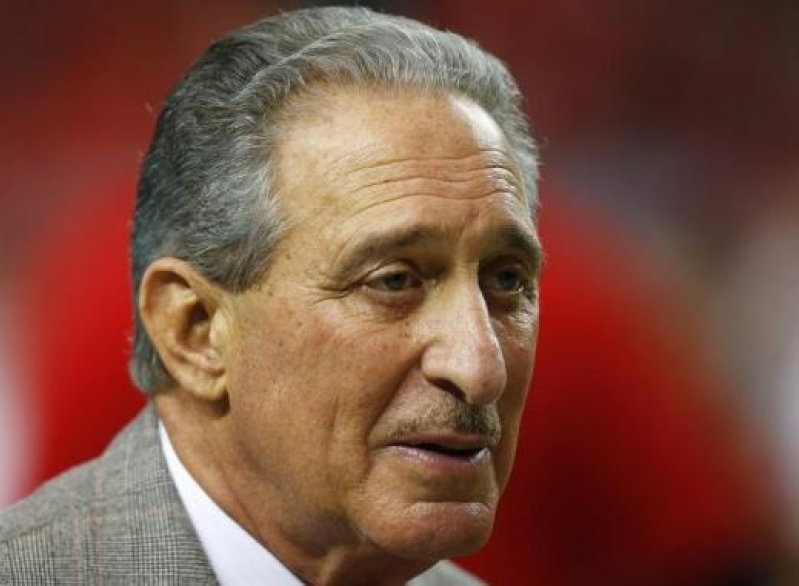
Atlanta is one of the finalists for the next two Super Bowls to be awarded, along with New Orleans, Miami and Tampa; the city was favored because of its new, future retractable-roof stadium. However, a so-called "religious freedom" bill approved by Georgia Legislators that protects opponents of same-sex marriage could change the NFL's choice. This religious exemptions' House Bill 757 has created concerns it could lead to discrimination against gay, lesbian and transgender people.
The NFL acknowledged the religious exemptions' bill, passed by both houses of the Legislature but still needing the signature of Gov. Nathan Deal, could have an impact on the selection process for the championship game in 2019 and 2020, reports CBS News.
Atlanta Falcons' owner Arthur Blank said Friday he opposes the bill, following other business leaders that have come out against the proposed law. He was a co-founder of Home Depot, and has owned the Falcons since 2002.
"One of my bedrock values is 'Include Everyone' and it's a principle we embrace and strive to live each and every day with my family and our associates, a vast majority of which live and work in Georgia," said the Falcons' owner.
"I strongly believe a diverse, inclusive and welcoming Georgia is critical to our citizens and the millions of visitors coming to enjoy all that our great state has to offer," Blank said in a statement Friday. "House Bill 757 undermines these principles and would have long-lasting negative impact on our state and the people of Georgia."
"NFL policies emphasize tolerance and inclusiveness, and prohibit discrimination based on age, gender, race, religion, sexual orientation or any other improper standard," league spokesman Brian McCarthy said. "Whether the laws and regulations of a state and local community are consistent with these policies would be one of many factors NFL owners may use to evaluate potential Super Bowl host sites."
The NCAA's stance was stated as: "We'll continue to monitor current events, which include issues surrounding diversity, in all cities bidding on NCAA championships and events, as well as cities that have already been named as future host sites. Our commitment to the fair treatment of all individuals, regardless of sexual orientation or gender identity, has not changed and is at the core of our NCAA values. It is our expectation that all people will be welcomed and treated with respect in cities that host our NCAA championships and events."
CBS affiliate WGCL in Atlanta reports that both the Atlanta Hawks and the Atlanta Braves have also released statements critical of the bill.
"The Atlanta Braves organization believes that House Bill 757 is detrimental to our community and bad for Georgia," the statement reads. "Our organization believes in an environment that is inclusive of all people. In addition to allowing discrimination against citizens of this state, the bill will have a profoundly negative impact on our organization."
Last week, Georgia lawmakers also approved the elimination of $10 million in state sales taxes on Super Bowl tickets if Atlanta lands the game. The city had hosted the game two times, in 1994 and 2000. Subsequent bids failed to gain approval, with the NFL stating the city would be in a stronger position if it built a new stadium to replace the 24-year-old Georgia Dome.
Mercedes-Benz Stadium is going up next door to the Georgia Dome, which will be leveled after its replacement opens, reports CBS.






